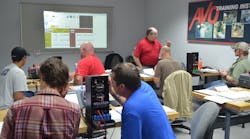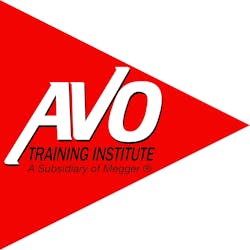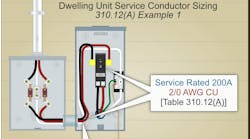Electrical Certification Programs Improve Maintenance and Safety
Exposure to electrical equipment carries risk, whether at installation, inspection, maintenance, repair, upgrade, or replacement. The most obvious hazards are death or injury from electrical burns, shocks, arc flash, fires, and explosions, but electrical incidents can also cause equipment and product damage, process or business interruption and legal and public relations costs.
To avoid these risks, electrical contractors and utilities depend on a skilled workforce with a baseline (or better) level of qualifications and experience.
“Qualified technicians operate with general knowledge of equipment operations and safety. Basic testing and troubleshooting skills are required as well as familiarity with company policies that govern lockout/tagout and in-place processes for isolation,” says Greg Richmond, senior training specialist at AVO Training Institute.
Not keeping up with new regulations, standards, technologies, processes, and applications is a risk too great to bear. For example, each time NFPA 70E changes, it has potential implications on electrical training and certification.
Fortunately, professional societies and institutions offer state-of-the-art training and certification programs, and keeping these programs current is their core competency. They actively track and incorporate the latest best practices into their certification programs, and often are involved in shaping industry standards.
Recognizing the Need for Training
Electrical worker certifications are sought for many reasons: new-hires; new equipment; transfers to a new shop or role; new rules, regulatory requirements or industry guidelines; or simply to upgrade an individual’s skill levels.
A certification program may encompass one or more training courses and testing to assure proficiency. They do, however, have a limited shelf life. Periodic renewals keep the personnel current on the latest standards and practices for electrical maintenance and safety.
Understanding the purpose and value of certifications and how best to choose from currently available options is vital. When it comes to work involving electricity, getting it right can mean the difference between safety and catastrophe.
Considerations for Program Selection
Choosing the right electrical certification program can be a challenge. The program choices may be driven by industry standards or corporate hiring policies or be mandated, such as state licenses for journeymen or master electricians. The equipment type can also influence the decision.
Ultimately, the programs chosen should reflect the individual’s job requirements, duties, skills and the types of equipment they’ll be working on or near. Weighing these variables against the purpose and substance of available certification programs helps to determine which ones will best fulfill the objectives.
Complementary Options
Although the more prominent electrical certifications tend to serve distinct purposes, they are complementary in how they support safe and proper interaction with electrical equipment and systems.
“They all increase the employee’s skill and knowledge level when working in the electrical environment and allow recognition of issues that could result in equipment failure or employee exposure to existing hazards,” says Tom Norwood, senior electrical safety specialist at AVO Training Institute.
While all add value, earning a certification will not necessarily fulfill OSHA’s qualification requirement for electrical work. For example, a licensed journeyman with extensive experience wiring commercial facilities wouldn’t automatically be qualified to work on manufacturing equipment. This is where supplemental, specialty certifications become important.
In order to develop and certify more-specific skill sets, companies can turn to specialty certification bodies whose programs conform to standards from organizations such as OSHA, NEC, IEEE and NESC. One example provider is AVO Training Institute, which offers a dozen equipment/technology-specific electrical certification programs for electrical technicians, all of which meet the requirements of OSHA 29 CFR 1910.269(a)(2)(vii).
Pairing these targeted programs with traditional certifications increases the scope of knowledge and abilities developed. For example, a worker responsible for testing and maintaining protective relays who achieves an AVO Advanced Protective Relay Maintenance Technician certification, an NFPA Certified Electrical Safety Worker certification and an SMRP Certified Maintenance and Reliability Technician certification, will be more well-rounded from a tactical, safety, and reliability perspective.
Similarly, engineers, electrical technicians and supervisors responsible for power cables who earn AVO’s Medium-Voltage Cable Diagnostics & Testing certification will learn how to perform and analyze tests such as insulation resistance, withstand, partial discharge and tan delta to better recognize cable deterioration and improve predictive maintenance. Complementary certifications for this role may include NICET Electrical Power Testing and NFPA Certified Electrical Safety Worker certifications.
Before choosing a certification program, electrical professionals must consider several different factors. For example, they must ensure the courses are consistent with their needs, the instructors have adequate knowledge, field experience and credentials and the class sizes are small for more individualized attention. By following these guidelines, they can reap rewards from a certification program and enjoy long-term career success.
Sponsored By:




